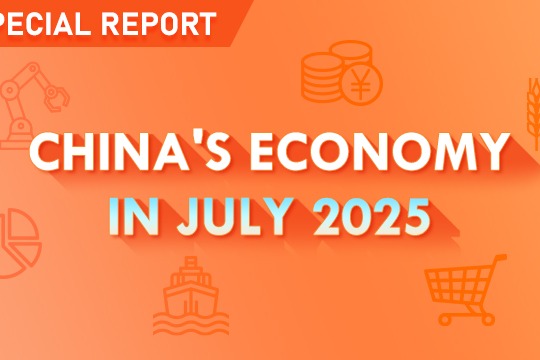'US risks future of multilateral system'


The United States' violation of World Trade Organization principles could endanger multilateralism, while China has been firmly obeying WTO rules to safeguard the global trade system, experts said.
Concerns have arisen over escalating trade conflicts between the two sides, which would lead to a situation where normal trade disputes are solved by unilateral action rather than multilateral procedures, they said.
US tariff measures under Section 301 of US Trade Act of 1974 have violated the rules and principles of the WTO in three respects, said Xiao Jin, a partner at King & Wood Mallesons, a Beijing-headquartered multinational law firm.
"First, it is a violation of the principle of most favored nation status, as the US announced additional tariffs targeting only China but not any other countries," he said.
Most favored nation status is essentially a method of establishing equality of trading opportunity among states by making originally bilateral agreements multilateral.
"Second, the announced 25 percent tariffs on Chinese imports exceed the maximum rates the US has committed to under the WTO," Xiao said. "Third, under the exclusive jurisdiction of the WTO dispute settlement system, any attempt to seek redress must be made in the institutional framework of the WTO only."
Xiao said the US has been vetoing the appointment of new members to the WTO's Appellate Body since last year, which will destroy the dispute settlement mechanism in the near future and damage the multilateral dispute settlement mechanism.
Zhang Xiangchen, China's ambassador to the WTO, agreed. He said in a written statement that the US has "gravely undermined the foundation of the WTO and put the WTO in unprecedented danger".
In stark contrast, China has been firmly defending the multilateral system and seeking redress via WTO procedures to solve trade disputes.
Shortly after the unilateral moves by the US, China filed requests for consultation under the WTO dispute settlement framework over the US tariff proposals against China under the Section 301 investigation and Section 232 of the US Trade Expansion Act of 1962.
"As the US refused to negotiate in accordance with WTO rules, China has to initiate the dispute settlement procedure to defend its rights and interests," China's Ministry of Commerce said in an online statement.
There have been 137 cases against the US at the WTO, accounting for around a quarter of the total cases handled by the organization, according to the statistics offered by Xiao.
The data showed that, of the 80 cases for which the WTO has issued rulings, the US lost 69 of them, being held to have violated WTO rules. This number is far more than that of China.
US pursuit of "fair trade", which underlines "absolute fairness", is parochial, said Dong Yan, director of the International Trade Office at Institute of World Economics and Politics of the Chinese Academy of Social Sciences.
"It not only asks for the same competitive environment as other countries for US producers, but also requires other economies to impose the same level of tariffs and achieve the same level of opening-up as the US."
Zhong Nan contributed to the story.
- Business and opinion leaders weigh in on trade tensions at China Forum
- US more at risk in trade battle
- China imposes additional tariffs on US products worth $50b
- Trump's cheap trade remedies will lead America to dead-end: Commentary
- China strongly condemns, firmly opposes new US tariffs to be imposed on Chinese




































